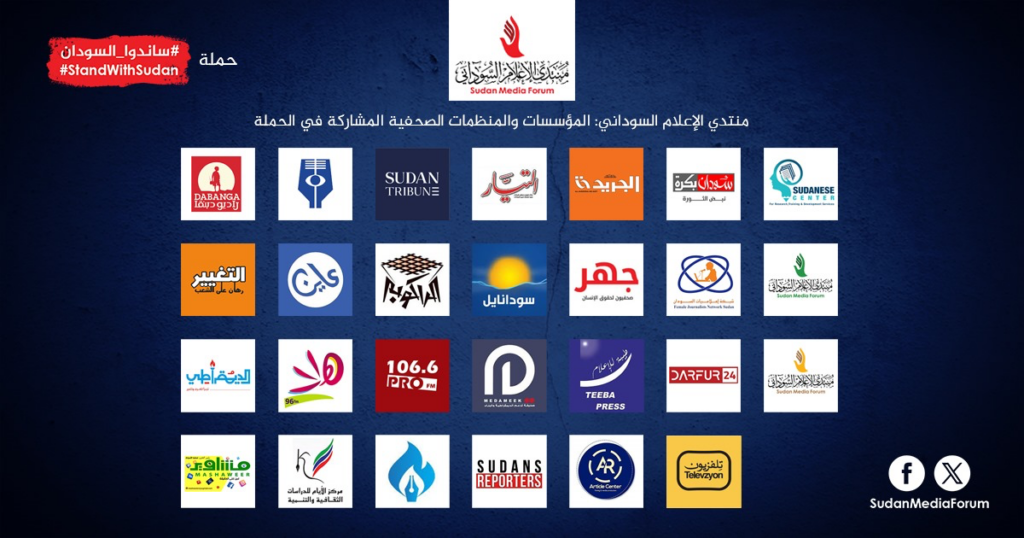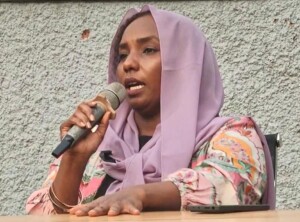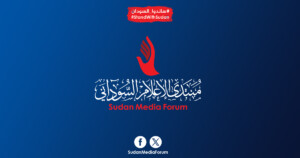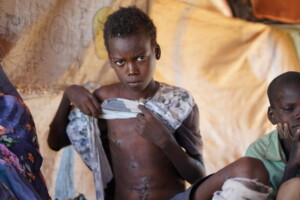With Sudan’s media muzzled, famine ravages a nation in the dark

Our country Sudan is enduring an unprecedented humanitarian tragedy, as evidenced by reports and statistics from international humanitarian agencies, testimonies from grassroots organisations and emergency rooms tirelessly supporting displaced people and those residing in areas grappling with food shortages.
Joint editorial by the Sudan Media Forum*
Reports from international organisations reveal that nearly half of Sudan’s population, approximately 18 million people, face the looming threat of famine, with five million already experiencing extreme levels of hunger. This crisis coincides with the second consecutive year of agricultural failure due to the devastating war, which has prevented the cultivation of essential food crops in key agricultural regions.
The dire situation is further exacerbated by the difficulty of delivering humanitarian aid to affected areas due to obstruction by both warring parties. They impede aid convoys, often resorting to confiscating and even diverting supplies for their own use. This year’s unusually severe autumn rainy season has also disrupted major roads, destroyed bridges, and further hindered the delivery of crucial humanitarian assistance.
Numerous international organisations, including the Food and Agriculture Organization (FAO), the World Food Programme (WFP), the United Nations Office for Humanitarian Affairs (OCHA), the UN Children’s Fund (UNICEF), and others, are actively monitoring the situation in Sudan. Emergency rooms, charitable organisations, and local committees dedicated to supporting displaced people are working tirelessly on the ground to provide daily meals and medical care to those affected by the conflict, navigating exceptionally challenging and complex circumstances.
This vital humanitarian work faces numerous obstacles imposed by both warring parties in the areas under their control, beginning with administrative and bureaucratic hurdles. Humanitarian workers and volunteers also face threats ranging from arrests and prolonged investigations to restrictions on movement, systematic targeting, and confiscation of the desperately needed aid they bring to assist citizens impacted by the war.
The numerous restrictions imposed on civil society organisations and grassroots committees serving local communities have severely hampered their ability to gather information, assess the situation, and issue calls for assistance. Communication blackouts have further compounded these challenges by limiting communication capabilities and hindering access to funding via banking applications, which have become the sole means of transferring money.
The local and foreign media face a similar predicament, unable to adequately report on the humanitarian crisis affecting refugees and displaced people due to restrictions, communication disruptions, and internet outages. Journalists are not permitted to operate freely in covering these critical issues, often forced to work in secrecy, which is entirely incompatible with the nature of their work. They need to communicate with those directly affected, conduct on-site investigations, and obtain accurate statistics and data from responsible authorities.
Even when foreign journalists and media personnel are granted access to the country, they remain under strict surveillance by both warring factions, preventing them from obtaining credible information. The national media is also marginalized, creating a vacuum filled with unreliable estimates, figures, and inaccurate reports.
Despite these immense challenges, the free and independent national media, steadfast in its commitment to journalistic principles, perseveres in fulfilling its professional duty. Journalists in Sudan operate under perilous conditions, facing various violations, yet their unwavering resolve is encapsulated in their motto: “We work for the people and the country… whatever the cost.”
We, of the Sudan Media Forum, remain dedicated to our mission of seeking and disseminating the truth. We will continue to uphold our professional duties and responsibilities with unwavering dedication, despite the risks and challenges faced by our colleagues reporting from conflict zones, displacement areas, and refugee camps within and beyond Sudan’s borders. We are committed to shedding light on the dire reality, regardless of the obstacles.
Furthermore, we at the Sudan Media Forum will continue to advocate for the empowerment of journalists from all Sudanese, regional, and international media outlets. They must be allowed to carry out their professional duties, including the right to access information and publish news reports and stories about the humanitarian situation and the famine threatening millions in Sudan. This right is enshrined in international humanitarian law and human rights law.
Both parties to the conflict must uphold their international obligations to ensure the safety and protection of journalists without delay or obstruction. We will persistently emphasise this imperative, recognising the critical importance of enabling the press and journalists to provide independent coverage of the armed conflict in Sudan and its devastating impact on the lives, security, and well-being of civilians, wherever they may be.
#StandWithSudan
* This report was produced as part of the #StandWithSudan campaign launched by the Sudan Media Forum in April this year, to draw attention to the humanitarian disaster, avert famine, and halt violence against civilians in Sudan. It has been published in Arabic and/or English by the media institutions and organisations participating in the campaign.











 and then
and then